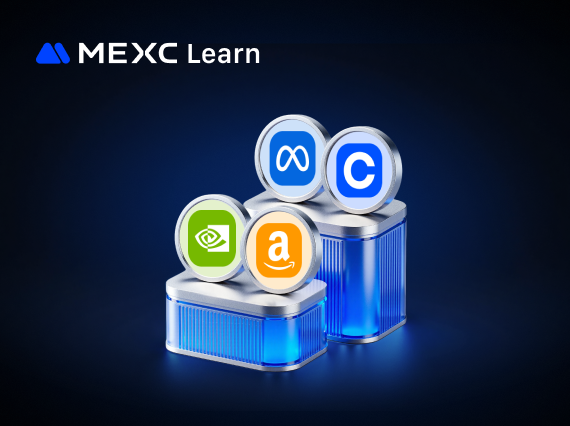Key Takeaways
- Market Access: MEXC offers over 2,800 cryptocurrencies, thousands of spot pairs, and an extensive derivatives ecosystem. Bybit focuses on derivatives and high-leverage trading with a more curated asset selection.
- Trading Fees: MEXC provides lower and more predictable fees, with reductions for MX token holders and VIP users. Bybit uses a tiered fee system primarily for derivatives trading, which can be higher depending on product and volume.
- Products & Features: MEXC supports spot trading, USDT-M and Coin-M futures, copy trading, staking, Launchpad projects, and structured products. Bybit emphasizes derivatives, advanced order types, and professional-grade trading tools.
- Security: Both exchanges implement cold wallet storage, two-factor authentication, withdrawal whitelists, insurance coverage, audits, and bug bounty programs. MEXC additionally publishes Proof of Reserves for major assets, reinforcing transparency and trust.
- Best For: MEXC suits traders seeking variety, early access, and opportunity-driven trading. Bybit is better for those focused on derivatives, leverage, and professional trading strategies.
Introduction to Crypto Exchanges
Overview: MEXC and Bybit
Feature | MEXC | Bybit |
Founded | 2018 | 2018 |
Headquarters | Seychelles | Dubai, UAE |
Number of Users | 40+ million users in 170+ countries | 60+ million (global users) |
Primary Positioning | Global, opportunity-driven exchange focused on fast listings, derivatives, and wide token access | Derivatives‑first exchange offering high liquidity, deep futures market, and a comprehensive trading ecosystem |
MEXC Overview
Bybit Overview
Why Traders Might Prefer MEXC Over Bybit
Products and Features: Side-by-Side Comparison (MEXC vs Bybit)
Product / Feature | MEXC | Bybit |
Core focus | High-liquidity altcoins, derivatives, comprehensive trading suite | Derivatives-focused exchange with high-leverage trading |
Spot trading | 2,800+ trading pairs across major, mid-cap, and long-tail assets | 200+ trading pairs, mostly high-liquidity assets |
Margin trading | Supported across multiple pairs | Supported on select pairs |
Futures / derivatives | USDT-M & Coin-M futures, leverage up to 200× | USDT-M and inverse futures, leverage up to 100× |
Token selection | Extremely wide, strong presence in early-stage and niche tokens | Focused on major and mid-cap assets |
Copy trading | Integrated ecosystem | Not a core product |
Trading bots | Native tools and strategy features | Limited automation tools |
Staking & earn | Flexible staking, Launchpad, Kickstarter events, savings | Flexible staking on select assets |
Advanced tools | Demo trading, advanced order types, professional-grade charts | Advanced charting and order types for derivatives |
API support | Full REST + WebSocket | Full REST + WebSocket |
Fiat on-ramp | P2P, cards, third-party providers | Cards and third-party only |
Platforms | Web, mobile app, desktop | Web, mobile app, desktop |
User profile | Active, opportunity-driven, derivatives-focused traders | Derivatives traders, high-leverage users |
MEXC Products and Features
Bybit Products and Features
Why Traders Might Prefer MEXC Over Bybit
Supported Assets and Markets Comparison Table
Category | MEXC | Bybit |
Supported cryptocurrencies | 2,800+ coins and tokens | 300+ coins and tokens |
Token listing strategy | Aggressive, frequent listings including emerging sectors | More conservative, focuses on established projects |
Altcoin & micro-cap coverage | Very extensive, includes niche and low-cap tokens | Limited, mostly mid- and high-cap coins |
DeFi, GameFi, AI, Meme tokens | Strong and expanding | Moderate, limited exposure to emerging sectors |
Spot trading pairs | Thousands of pairs across all cap sizes | 300+ pairs, primarily high-liquidity assets |
Futures / Derivatives contracts | Extensive, major and niche perpetuals supported | USDT-M and inverse perpetuals, leverage up to 100× |
Leveraged ETFs / Structured Products | Emerging, derivative-style products linked to token launches | Limited structured products, mostly derivatives-focused |
Best for | Traders seeking maximum market access, early-stage exposure, and high opportunity | Traders focused on high-leverage derivatives and established assets |
MEXC Supported Assets and Markets
Bybit Supported Assets and Markets
Why MEXC Is Better for Market Coverage
Trading Fee Comparison
Market | Fee type | MEXC | Bybit |
Spot | Maker | 0.00% | 0.10% base |
Spot | Taker | 0.05% standard / 0.025% ≥ 500 MX | 0.10% base (discounts via VIP tiers) |
Futures | Maker | 0.005% standard / VIP & MX discounts | 0.02% base (tiered VIP discounts available) |
Futures | Taker | 0.04% standard / 0.02% ≥ 500 MX / 0.01% VIP Experience Card | 0.04–0.05% depending on tier and product |
Crypto deposit | — | Free | Free |
Crypto withdrawal | — | Low, fixed per asset | Low, fixed per asset |
Fiat deposit / withdrawal | — | P2P and third-party, low fees | Third-party providers, low fees |
Fee model | — | Tiered, volume-based, MX token discounts | Tiered, volume-based, VIP discounts |
MEXC Trading Fee Structure
Bybit Trading Fee Structure
Why MEXC Might Be the Better Choice
Security Features
Feature | MEXC | Bybit |
Cold wallet storage | Majority of assets stored in cold wallets | Majority of assets stored in cold wallets |
Two-factor authentication (2FA) | Google Authenticator, SMS, email | 2FA via SMS, authenticator apps |
Withdrawal whitelist | Supported | Supported |
Insurance / protection fund | Dedicated insurance fund covering certain losses | Insurance for specific incidents |
Security audits | Regular internal and third-party audits | Regular audits and penetration testing |
Bug bounty program | Active | Active |
Security history | No major breaches reported | No major breaches reported |
Proof of reserves | Publicly published | Not publicly published |
MEXC Security Features
Bybit Security Features
Why MEXC Is the Safer Choice
Conclusion
Description:Crypto Pulse is powered by AI and public sources to bring you the hottest token trends instantly. For expert insights and in-depth analysis, visit MEXC Learn.
The articles shared on this page are sourced from public platforms and are provided for informational purposes only. They do not necessarily represent the views of MEXC. All rights remain with the original authors. If you believe any content infringes upon third-party rights, please contact [email protected] for prompt removal.
MEXC does not guarantee the accuracy, completeness, or timeliness of any content and is not responsible for any actions taken based on the information provided. The content does not constitute financial, legal, or other professional advice, nor should it be interpreted as a recommendation or endorsement by MEXC.
Learn More About Humanity
View More
What is USDT (Tether)? A Complete Guide for Cryptocurrency Beginners

StableChain (STABLE) Market Insight: On-Chain Reality vs. Doubling Potential

MSFT Earnings Date Q2 2026: What to Expect and How to Trade It
Latest Updates on Humanity
View More
Here’s why Humanity Protocol’s (H) market is shaky despite 10% rally

Hang Seng Index forecast after hitting a brick wall at H$27,165

Celestia (TIA) Breakout Alert: Inverted H&S Pattern Set to Skyrocket to $0.78?
HOT
Currently trending cryptocurrencies that are gaining significant market attention
Crypto Prices
The cryptocurrencies with the highest trading volume
Newly Added
Recently listed cryptocurrencies that are available for trading
